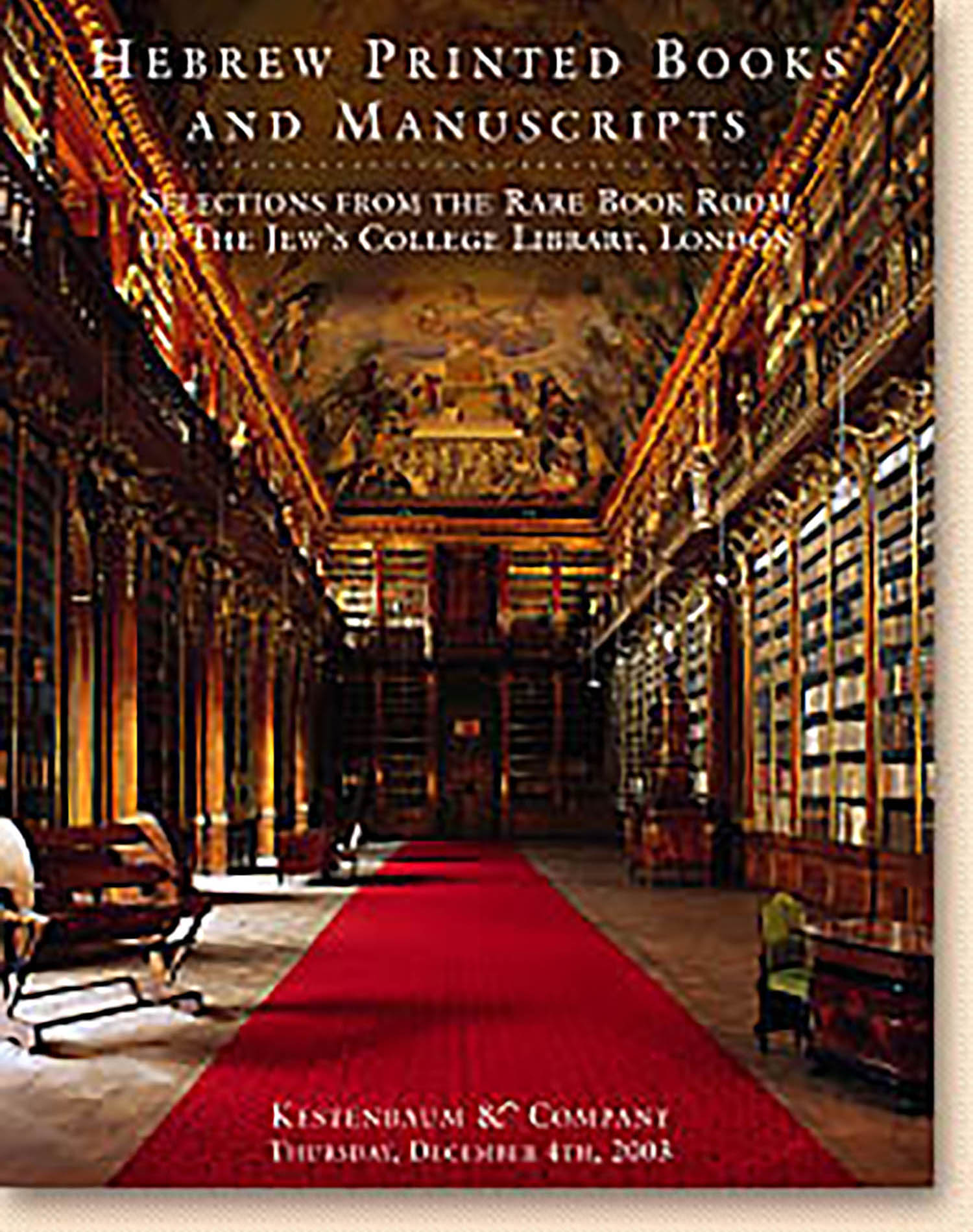(MIDRASH)

AUCTION 21 |
Thursday, December 04th,
2003 at 1:00
Kestenbaum & Company Holds Inaugural Auction of Hebrew Printed Books & Manuscripts at Their New Galleries
Lot 173
(MIDRASH)
Venice: Daniel Bomberg 1545-46
Est: $1,000 - $1,500
PRICE REALIZED $2,000
The collections of Halachic Midrashim emanated from the third and fourth generations of Tannaim. The methodology of these collections, known as motivated Halachah gives the rules together with their basis, the interpretation of the Biblical verse, and are arranged as a commentary to the Books of the Pentateuch. R. Ishmael’s Mechilta was the first collection of such motivated Halachoth. R. Judah and R. Shimons’ collections were stimulated by their great mentor, R. Akiva. The Halachic Midrashim which we posses, emanated from later anonymous hands but undoubtedly contain the Tannaic collections as their nucleus.
The Tanchuma-Yelamdainu Midrashic cycle is one of the earliest collections of homilies wherein the Halacha is conjoined to the Agada. Commencing with questions of Halachic matter the discussion whereupon turns to Agada and homiletic interpretation. The name given to the work refers to the numerous homiletic interpretations quoted in the name of Tanchuma, the son of Abba, a Palestinian agadist who lived towards the end of the fourth century. The second name, Yelamdeinu, arises from the fact that a large number of homilies open with the formula “Yelamdeinu Rabbeinu” (“May our master teach us”).
The Midrash Lekach Tov, dates towards the end of the eleventh Century and is a Midrash to the Pentateuch and some of the Scrolls. It draws on both Aggadic and Halachic sources, giving both interpretations. Only a part of the Lekach Tov was preserved, the final three Books of the Pentateuch and a short midrash on the Book of Ruth. See: M. Waxman, Vol. I pp. 66-69 & 149-150.
